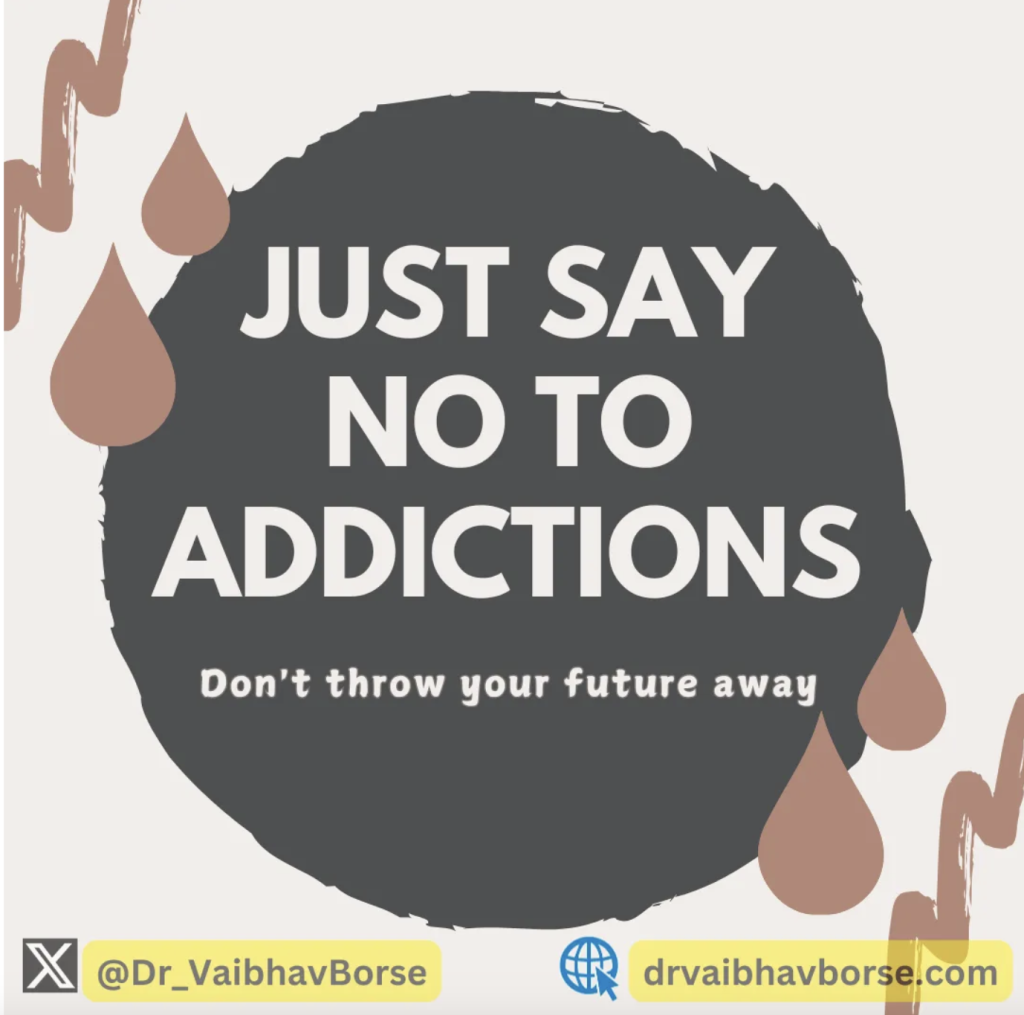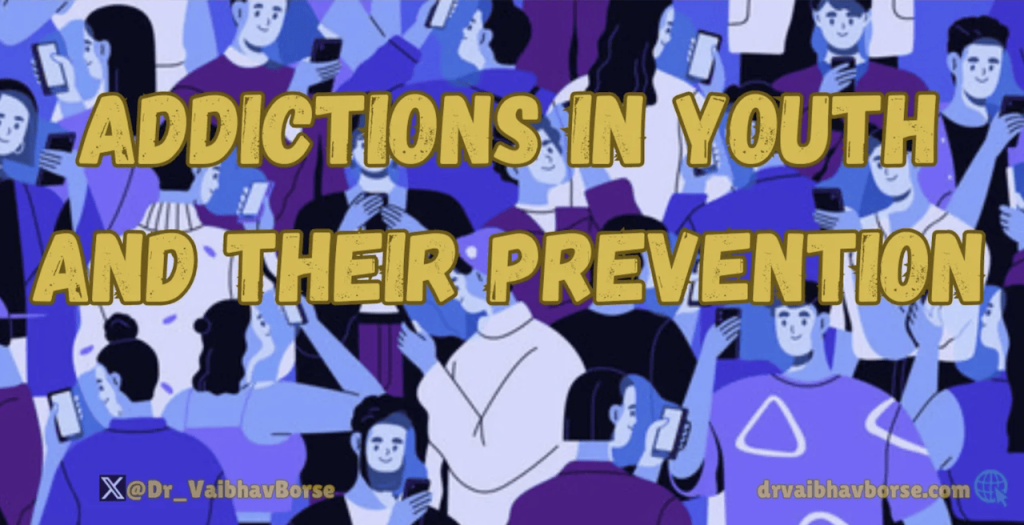Addiction among young people has become a pressing issue in modern society, with its roots deeply intertwined with psychological, social, and technological factors. Whether it’s substance abuse, gambling, or excessive screen time, these behaviors can have long-lasting consequences on the mental and physical health of youth, as well as on their relationships and prospects. Understanding the causes, effects, and prevention strategies is crucial in addressing this growing concern.
Causes of Addiction in Youth :
Peer Pressure and Social Influence: Young people often face immense pressure to fit in with their peers. This desire for acceptance can lead them to experiment with substances like alcohol or drugs or to engage in risky behaviors like gambling or excessive gaming.
Stress and Mental Health Issues: Academic pressures, family conflicts, and societal expectations contribute to stress and anxiety. Without healthy coping mechanisms, some youth turn to addictive behaviors as a form of escape. Easy Accessibility: The digital age has made addictive substances and activities more accessible than ever. Online platforms provide opportunities for gambling, gaming, and even purchasing illicit substances.
Genetic and Biological Factors: Some individuals may have a genetic predisposition to addiction, making them more vulnerable to developing addictive behaviors.
Lack of Awareness: Many young people are unaware of the long-term consequences of their actions. They may perceive risky behaviors as harmless experimentation.
Effects of Addiction: The impact of addiction on youth is profound and multifaceted. It affects not only the individual but also their families and communities.
Health Consequences: Addiction can lead to serious health problems, including liver damage from alcohol, lung issues from smoking, or obesity from excessive screen time.
Academic and Career Setbacks: Addiction often results in declining academic performance, absenteeism, and dropping out of school, limiting future career opportunities.
Mental Health Disorders: Addictions are closely linked to depression, anxiety, and other mental health disorders. These issues can create a vicious cycle, where addiction exacerbates mental health problems and vice versa. Strained Relationships: Families and friendships suffer as trust erodes and conflicts arise due to addictive behaviors. Legal and Financial Issues: Illegal activities to fund addictions, such as theft or fraud, can lead to criminal records and financial ruin. Prevention Strategies Preventing addiction in youth requires a multi-faceted approach involving individuals, families, schools, and communities.
Education and Awareness: Schools and community programs should educate young people about the risks and consequences of addiction. Awareness campaigns can highlight the dangers of substances, gambling, and excessive screen time. Parental Involvement: Open communication between parents and children is essential. Parents should create a supportive environment where children feel comfortable discussing their problems without fear of judgment.
Promoting Healthy Coping Mechanisms: Encouraging hobbies, sports, and creative activities can help young people channel their energy positively. Mindfulness practices like meditation and yoga can also help reduce stress. Building Resilience: Teaching youth how to handle peer pressure and make informed decisions can empower them to resist addictive behaviors. Programs focused on developing emotional intelligence and self-esteem are particularly effective.

Regulating Accessibility: Governments and organizations should work to limit the availability of addictive substances and activities. For instance, imposing age restrictions, monitoring online content, and controlling advertisements can reduce exposure. Providing Support Services: Early intervention programs, counseling services, and peer support groups can help at-risk youth address their problems before they escalate into full-blown addiction.
Conclusion:
Addiction among youth is a complex issue that demands urgent attention. By understanding its causes and effects, society can implement effective prevention strategies. Empowering young people with knowledge, support, and healthy alternatives is key to breaking the cycle of addiction and ensuring a brighter future for the next generation.
